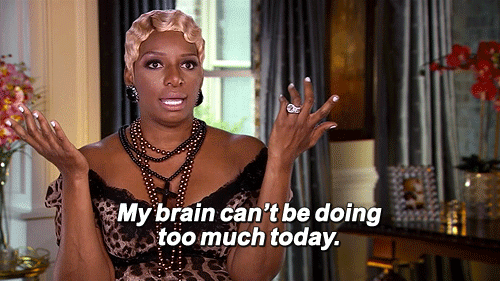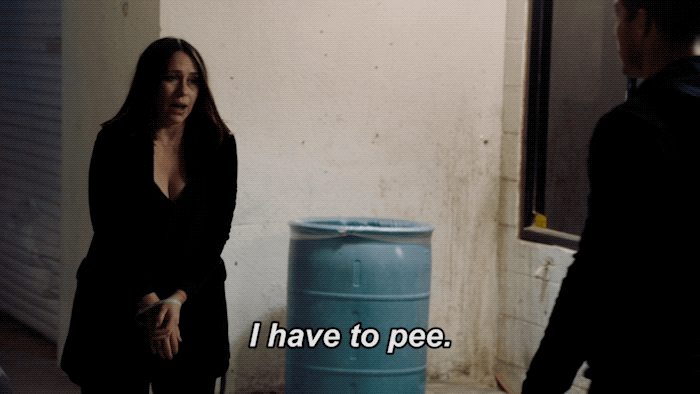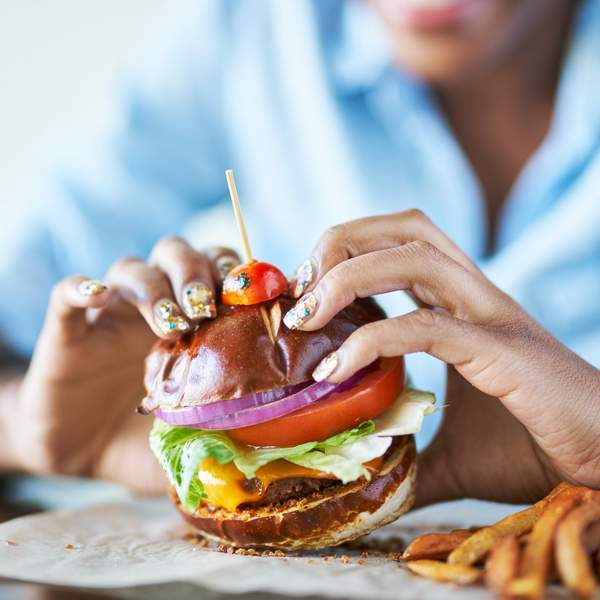"Fast food. Hamburgers, French fries, and soft drinks are typical fast food items. Fast food is a type of mass-produced food designed for commercial resale and with a strong priority placed on 'speed of service' versus other relevant factors involved in culinary science."—Wikipedia
So, here's what I'm hoping. I'm hoping that even if you're gonna wish that you could un-see all of this info by the time you finish reading this, that you caught this article before you go on your next lunch break. I say that because, if you're in the habit of running out to a local fast food joint to get a bite, you might want to rethink that plan.
Now before delving deeper into why I say that, let's do a quick review of some fast food places that ain't McDonald's, Wendy's or Arby's. In-N-Out. Panera Bread. Wingstop. Boston Market. Moe's Southwest Grill. Noodles & Company. Chipotle. Jason's Deli. Panda Express. Starbucks. Your beloved Chick-fil-A (which was voted the #1 fast food place this year). If you Google a list of popular fast food chains, these are going to be on it. The reason why I didn't go with a Popeye's, Sonic or Pizza Hut is because those are pretty obvious, right? But for whatever the reason, when a lot of us go to Panera or Chick-fil-A, we think that it's "the other fast food". I'm not saying that some places aren't healthier than others, but when it comes to choosing between what's best for your health (and wallet), nothing beats preparing your own meals.
Health-wise, you're about to see why, if folks in drive-thrus know you personally, it really is time to spend more time in grocery stores (or farmer's markets) instead of fast food restaurants.
Fast Food Affects Your Brain

Something that a lot of fast foods have in them is saturated fat (and fatty acids). The problem with that is when too much of it is in our system, it can cause us to experience impaired memory or to even for our cognitive function to get all sluggish. Some other things that saturated fat puts us at risk for is weight gain and heart disease.
Does this mean that you can't have a burger or milkshake ever? No. What it does mean is in order for you to remain relatively unaffected by saturated fats, you should consume no more than 10 percent of them a day. And a burger combo is a heck of a lot more than that.
Fast Food Attacks Your Teeth and Bones

Contrary to popular belief, it's not actually sugar that leads to cavities. What causes them is a combination of bacteria, acid on the enamel of your teeth and a vitamin deficiency. Three things that you can do to combat all of these issues is to brush and floss your teeth after every meal, take a Vitamin D supplement and consume (more) bone broth, and cut back on acidic foods like soda and carbs; especially soda because the citric acid that's in it is the most corrosive that there is (by the way, if you're wondering which soda does the most damage, check out "70 Most Popular Sodas Ranked by How Toxic They Are").
As far as your bones go in general, fast food is a no-no because it leads to obesity and obesity can directly affect bone density. Who wants weak bones? Exactly.
Fast Food Wears Your Kidneys Out

If there's one thing that fast food contains a ton of, it's sodium. As a result, we end up dehydrated, bloated and constipated with an elevated blood pressure and kidneys that have to work harder than they ever should. In fact, if you are someone who is prone to kidney stones and you're also someone who eats combo meals a lot, those two things typically go hand in hand. From what I hear, everything about kidney stones suck. Wouldn't you want to avoid what causes them at all costs?
(If you'd like a list of other types of foods that produce kidney stones, you can check one out here.)
Fast Food Wrecks Your Hair, Skin and Nails

If you're someone who has acne-prone skin, you've probably been told that chocolate and greasy foods like pizza are to blame. But there are actually studies that indicate carbs are the real culprit. The reason why is because carbs causes our blood sugar levels to increase; when that happens, breakouts are sometimes the result. Actually, one study revealed that kids and teens who have fast food, at least three times a week, are more likely to develop eczema.
Also, because fast food is not usually loaded with iron (like say, a salad is), that's why it's not the best thing for your hair (low iron can ultimately lead to thinning and even bald spots). Also, since fast food isn't all that big on Vitamin C, your hair, skin and nails aren't able to get the collagen boost that they need on a daily basis if that's constantly what you're putting into your system.
Fast Food Makes You Anxious

Something else that fast food lacks are omega-3 fatty acids. We need those because they improve the health of our eyes, fight inflammation, reduce our risk for contracting autoimmune diseases and reduce our chances of having an age-related illness (like Alzheimer's disease). One more thing—if you battle with anxiety, omega-3s are able to lower those symptom-related issues too. Since reportedly 1 in 5 Americans battle with some sort of anxiety disorder, this is certainly good food for thought. Literally.
The kinds of foods that are high in omega-3 fatty acids include eggs, walnuts, wild rice, oysters and flax seeds. I'm not sure what fast food restaurants are in plentiful supplies of these things so yeah, this is just one more reason to stay out of their drive-thru lines.
Fast Food Messes with Your Fertility

If you're trying to get pregnant, this is just one more reason to stay out of fast food places. Fast food is highly processed, and processed foods typically contain something known as phthalates. What's that? It's a chemical that totally disrupts the hormonal balance in your system. If your periods are irregular and your hormones are all over the place, that's going to make it difficult to conceive.
Something else that's pretty jacked up about phthalates is, if you're exposed to high levels of them, you could also put your baby at risk for having birth defects.
So yeah, if you're trying to conceive and currently have a French fry in your hand, hopefully this motivates you to toss it into the trash.
Fast Food Dyes Can Make You Ill

Before I get into how the dyes in fast food can jack you up too, another read that's totally worth your time is "Fast Food Is Actually Unhealthier Today Than It Was in the 80s". One of the reasons why this is the case is due to all of the preservatives that are in today's fast foods. Anyway, as if all of the red flags that you've already checked out aren't enough, something else that should give you cause for pause is all of the artificial coloring that goes into fast food.
C'mon, surely you don't think that Fanta Strawberry soda is naturally red or Dr. Pepper is naturally a dark caramel color. And speaking of the shades of caramel that you see, there are studies which indicate that it carries the human carcinogen known as 4-methylimidazole (4-MEI); in rats, the consumption of this has sometimes led to cancer. Again, another solid reason to take a fast food pass.
Fast Food Can Kill You. Literally.

OK, so if you somehow like your burgers, fries and shakes so much that you somehow found a way to rationalize your way out of all of what I just shared, be prepared for this drop the mic moment—"Eating Ultra-Processed Foods Increases Death Risk by 62%". Yep. You read the title of that article totally right! And what technically qualifies as being an ultra-processed food? Brace yourself—chicken nuggets, white bread, frappuccinos, energy drinks and bars, sweetened cereals, fried chicken, potato chips, frozen pizza, packaged snacks, fries, biscuits, soda and pretty much any other kind of food that contains a lot of sugar and/or preservatives, artificial flavors, and colors. Is your favorite fast food restaurant good enough to die before your time for? (The answer to that is a firm "hell no".)
Whew, that's a lot of drama to take in. And, just like Rome wasn't built in a day, neither was going from eating fast food a few times a week to not consuming it at all. But remember that a lot of the fast foods that you like, you can still have so long as you're willing to prepare them yourself and make them differently. For soda, add some juice or lemon and lime to your sparkling water. For fries, bake potato wedges in your oven. Turkey and bean burgers are good beef burger alternatives. A homemade dark chocolate and banana smoothie is much healthier than a Sonic shake.
Bottom line is, when it comes to fast food and what it does to our bodies, all of them ultimately bring new meaning to "haste makes waste". Fast ain't always good, y'all. Choose (to eat) wisely.
Want more stories like this? Sign up for our newsletter here and check out the related reads below:
10 "Healthy" Foods That Actually, Well...Aren't
10 Foods You Should Eliminate From Your Diet If You're Trying To Lose Weight
15 Vegan Soul Food Dishes That'll Make You Rethink Meat
Plantain Flour, Spirulina & Other Uncommon Foods To Add To Your Diet
Feature image by Getty Images
- What Happens To Your Body When You Stop Eating Junk Food ... ›
- Top 12 Reasons Why You Should Not Eat Fast Food | ListSurge ›
- 26 Reasons to Finally Stop Eating Junk Food | Wealthy Gorilla ›
- Fast Food Facts | Young Men's Health ›
- 20 Negative Effects of Fast Food on Your Body | Eat This Not That ›
- 13 Effects of Fast Food on the Body ›
- Six reasons you should stop eating fast food immediately | PhillyVoice ›
- 16 McDonald's Confessions From Employees That Will Leave You ... ›
- How to Stop Eating Junk Food: 10 Tips ›
- Stop Eating Fast Food: Why Fast Food Is Slowly Killing You ›
- How to Overcome Food Addiction ›













